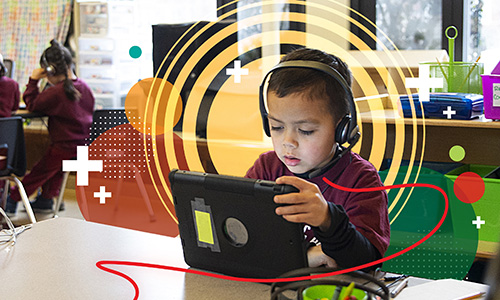

NWEA research report examining the impacts of the pandemic’s disruptions to learning and the status of academic recovery. This report features data from the 2023-24 academic year and underscores that unfinished learning continues to be a challenge due to lower achievement gains compared to pre-pandemic trends. This report is part of series tracking the on-going impacts.
By: Karyn Lewis, Megan Kuhfeld
Products: MAP Growth
Topics: COVID-19 & schools, Equity, Growth


MAP Reading Fluency with Coach Evidence Base
This document provides an overview of the research underlying MAP Reading Fluency with Coach’s AI-powered intelligent reading tutor and the research on key elements of early literacy instruction. It describes the components of the MAP Reading Fluency with Coach pedagogy and the research base supporting each component.
By: Amy Endo
Products: MAP Reading Fluency
Topics: Early learning, Empowering educators, Innovations in reporting & assessment, Reading & language arts


Predicting Amira Reading Mastery Based on NWEA MAP Reading Fluency Benchmark Assessment Scores
This document presents results from a linking study conducted by NWEA in May 2024 to statistically connect the grades 1–5 English Amira Reading Mastery (ARM) scores with the Scaled-Words-Correct-Per-Minute (SWCPM) scores from the MAP Reading Fluency benchmark assessment taken during Fall and Winter 2023–2024.
By: Fang Peng, Ann Hu, Christopher Wells
Products: MAP Reading Fluency
Topics: Computer adaptive testing, Early learning, Measurement & scaling, Reading & language arts


Effective summer programs: Practical guidance for district leaders
This report dives into the research on summer programs, their implementation and design, as well as the efficacy of those programs for literacy, math, and social-emotional learning (SEL) outcomes. It also provides recommendations for district leaders to use as a framework for planning and implementing effective summer programming.
By: Miles Davison, Jazmin Isaacs, Michael Gaddis, PhD, Sofia Postell, Ayesha K. Hashim, Susan Kowalski, Karyn Lewis
Topics: COVID-19 & schools, Growth, Guidance, Seasonal learning patterns & summer loss


When are students “ready” for algebra?
A new guidance document from NWEA can help schools know when students are ready and would benefit from enrolling in Algebra 1.
By: Scott J. Peters
Topics: Math & STEM


Summer learning loss: What we know and what we’re learning
In this blog, Megan Kuhfeld shares background on what we know about summer learning loss, and the significant gaps that remain in our understanding that drive her work to take a fresh – and deeper – look at the phenomenon.
By: Megan Kuhfeld, Andrew McEachin


3 considerations on chronic absenteeism for education policymakers
New research indicates academic behaviors—including avoiding chronic absenteeism—are predictive of graduation and college attendance rates.
By: Megan Kuhfeld


